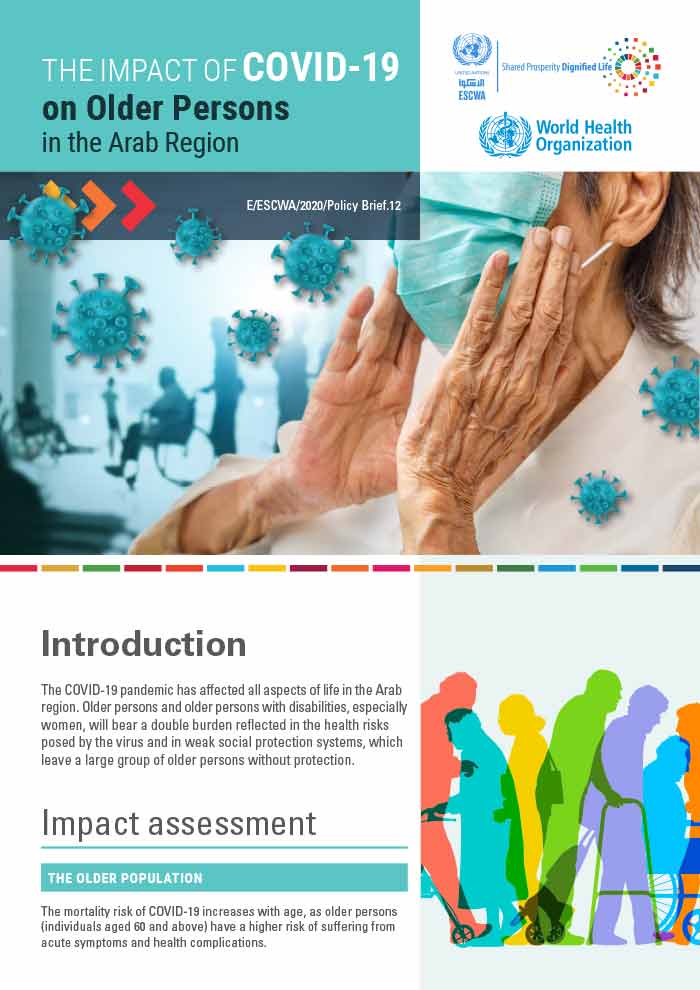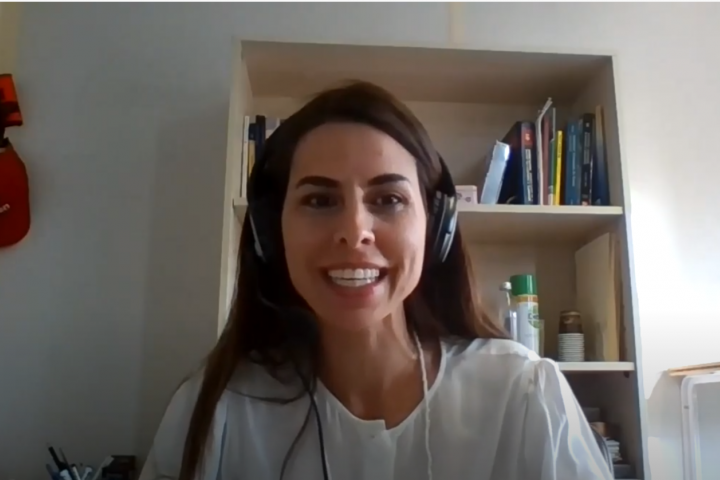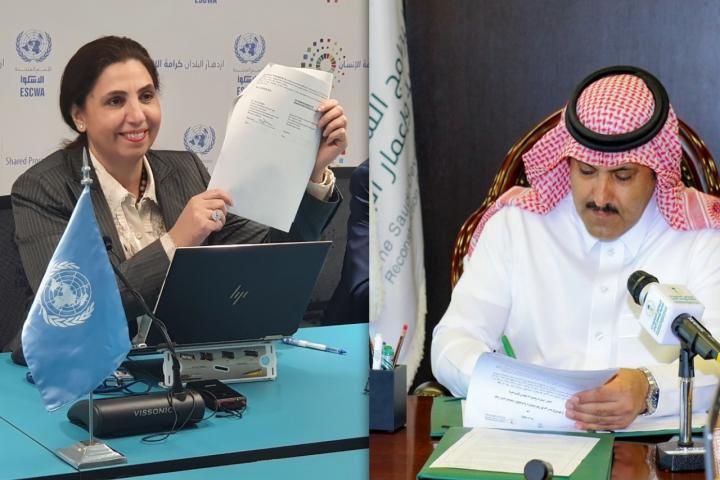Beirut, 25 June 2020--The devastating effects of COVID-19 have severely impacted two main groups of the Arab population: the young and the elderly. Young people, already registering the highest and fastest growing unemployment rate worldwide—23% in 2020—will face serious challenges in re-entering the job market after the lockdown. The pandemic has also heightened the vulnerability of about 32 million older persons in the region. To tackle its impact on these two social groups, the United Nations Economic and Social Commission for Western Asia (ESCWA) has issued two policy briefs, partnering with the World Health Organization (WHO) for the one on older persons, to support Governments in protecting them during this critical phase and beyond.
According to the policy brief on the Impact of COVID-19 on Young People in the Arab Region, the post-COVID-19 job market will require a new set of skills unlikely to be held by the majority of the region’s young people, in particular the 85% of them who are employed in the informal sector. Millions of young Arabs have become at risk of plunging deeper into poverty, especially those living in rural areas and those with disabilities.
Close to 100 million students are currently out of school in the Arab region, where Internet connectivity remains a challenging issue making distance learning difficult, all the more so when, aside from Gulf Cooperation Council (GCC) countries, only some 52% of households in Arab countries have Internet access. About 480,000 university students studying abroad have had to be repatriated in the region, with no end in sight to the current lockdown. Such problems are further aggravated by the fact that over 25 million Arab youth are not in education, employment or training.
To address these challenges, ESCWA Executive Secretary Rola Dashti invited Governments to revise their national youth strategies to ensure greater inclusion and participation, and to further invest in youth entrepreneurship projects. “Governments should also consider the importance of increasing the quantity and quality of digital access and reducing associated costs,” she added.
As for older persons, the dedicated brief underlines that older women will be most affected by the pandemic, namely those with severe to moderate disabilities who make up 4 of the 7 million older persons with such disabilities in the region.
In addition, high illiteracy rates among older persons, as well as high technological illiteracy, limit their ability to stay informed about COVID-19 impact and preventive measures, and to connect with others to solicit assistance or reduce feelings of isolation. Their situation is also worsened by limited universal health coverage and inadequate social protection services.
“Governments should increase the coverage of social protection systems to ensure that all older persons enjoy access to affordable health services, and provide them with the needed information. They should also establish additional health-care facilities; and monitor and address mistreatment and violence cases,” Dashti said. She also stressed the role that family members, neighbours and friends can play to alleviate the impact of the pandemic on the elderly by staying in touch with them to reduce social isolation.
Following an earlier ESCWA policy brief dedicated to another main population group, women and girls, the two policy briefs form part of a series of impact assessments of COVID-19 undertaken by ESCWA to support Arab Governments in joining efforts to mitigate the effects of the pandemic.
About ESCWA
One of five United Nations regional commissions, ESCWA supports inclusive and sustainable economic and social development in Arab States, and works on enhancing regional integration.
For more information
Ms. Maryam Sleiman, Public Information Assistant, +961-81-769-888; sleiman2@un.org
Ms. Rania Harb, Public Information Assistant, +961-70-008-879; harb1@un.org




